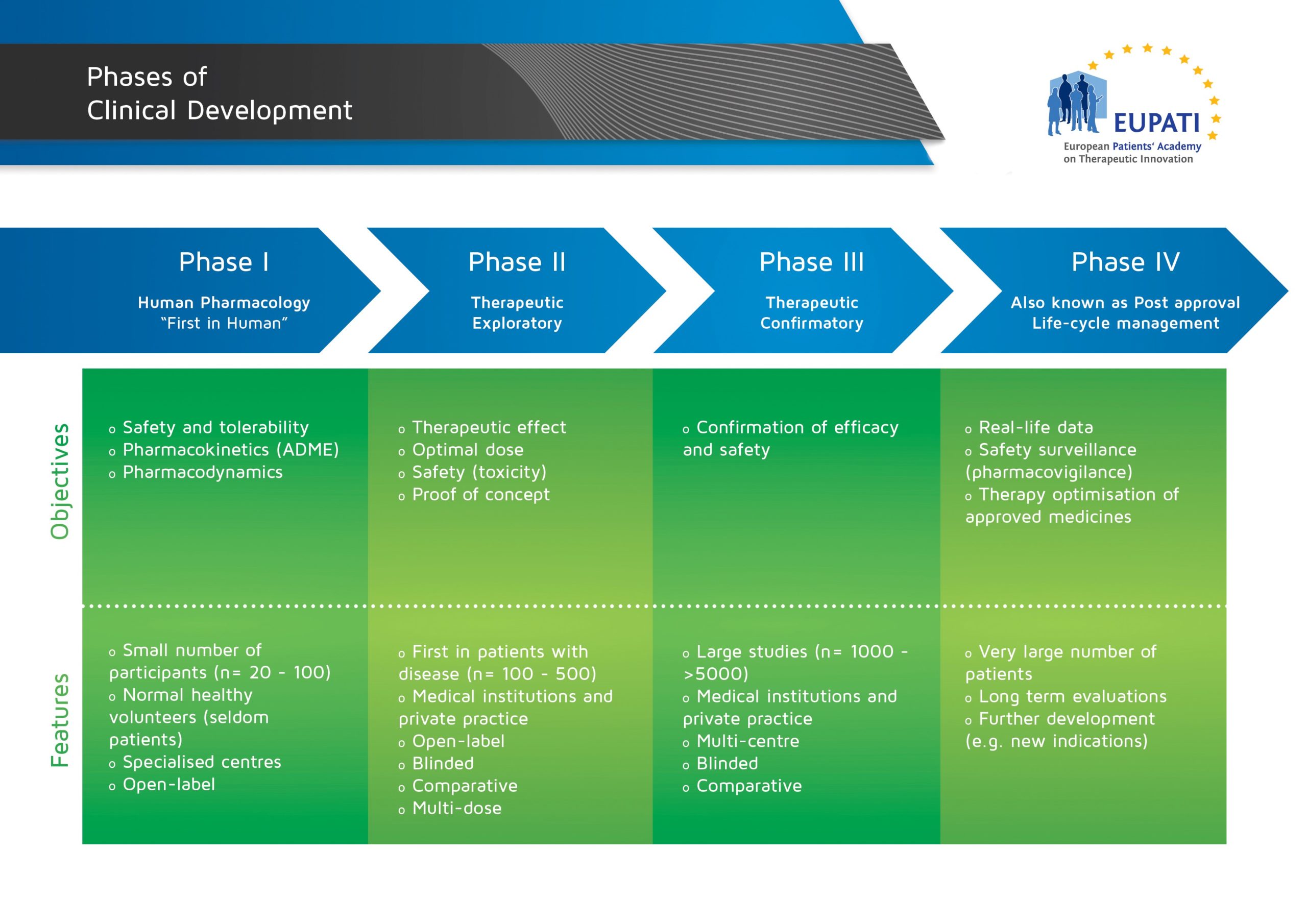Phase II Trials
Phase II trials are generally the first studies with a new medicine in patients. They are usually conducted in a small number of patients who are monitored closely. These trials are often larger than Phase I trials.
Phase II studies are designed to find out if the medicine has a beneficial effect on the disease in question: They might compare the new medicine to an existing treatment or to a placebo. They also set out to determine the best dose range and how often the medicine should be given, and investigate the best way to manage any side effects.
A new medicine has to meet certain pre-set requirements before it can continue to Phase III trials. Phase I, II, and III trials are commonly known as ‘clinical development’.
#mla_gallery-1 { margin: auto; width: 100%; } #mla_gallery-1 .gallery-item { float: none; margin: 1.5%; display: inline-block; text-align: center; width: 97%; } #mla_gallery-1 .gallery-item .gallery-icon img { border: 2px solid #cfcfcf; } #mla_gallery-1 .gallery-caption { margin-left: 0; vertical-align: top; } /* see mla_gallery_shortcode() in media-library-assistant/includes/class-mla-shortcode-support.php */
- The four phases of clinical development differ in terms of their objectives and features.
